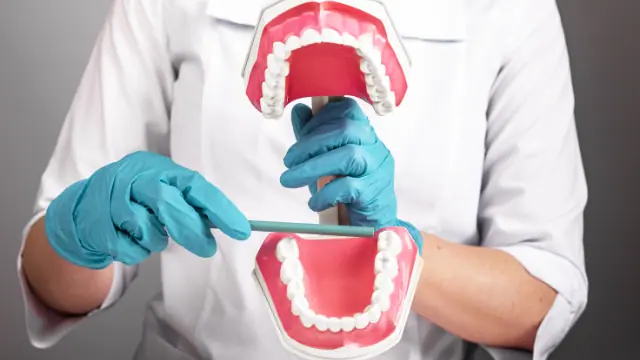
10 Things You Should Know About Wisdom Teeth
Teeth, known as 3rd molars, are the last set of teeth to develop in the human’s mouth. These teeth erupt between the ages of 17 and 25, and their arrival can often cause confusion and concern. Wisdom teeth can lead to a variety of dental issues if not properly managed. In this article, we will explore 10 important facts you should know about wisdom teeth.
What Are The Wisdom Teeth?
Wisdom are the third set of molars that grow at the back of the mouth, both on the top and bottom jaws. Mostly people have four wisdom teeth, but some may have fewer or none. These teeth were useful to our ancestors who had a diet of coarse food, but due to changes in human diet and jaw size over time, wisdom teeth have become unnecessary and often problematic.
When Do Wisdom Teeth Erupt?
Wisdom teeth typically erupt during the late teenage years or early adulthood, usually between the ages of 17 and 25. However, the timing can vary from person to person. Some individuals may experience wisdom tooth eruption earlier or later in life. Monitoring their development and consulting with a dentist is crucial to determine the appropriate course of action.
Impact of Wisdom Teeth
The most common issues associated with wisdom teeth impaction. The impacted teeth occur when there is no space in the jaw to accommodate their eruption. This can cause the teeth to become partially or fully trapped within the jawbone or gums. Wisdom teeth can lead to pain, swelling, infection, and damage to neighboring teeth if left untreated.
Signs of Impacted Wisdom Teeth
Recognizing the signs of impacted wisdom teeth is essential for early intervention. Symptoms may include jaw pain, swollen or bleeding gums, difficulty opening the mouth, bad breath, or an unpleasant taste in the mouth. Regular dental check-ups and X-rays can help identify impacted wisdom teeth even before symptoms arise.
The Importance of Extraction
Due to the potential complications associated with wisdom teeth, extraction is often recommended. Extraction is typically performed by an oral surgeon or a dentist with specialized training. Removing wisdom teeth can prevent pain, infection, crowding, and damage to adjacent teeth. Dentists may recommend extraction even if the wisdom teeth are not causing immediate problems as a proactive measure.
Surgical vs. Non-Surgical Extraction
The extraction of wisdom teeth can be performed through surgical or non-surgical methods, depending on the position and condition of the teeth. Non-surgical extraction involves simple tooth removal, while surgical extraction is necessary for impacted or partially erupted wisdom teeth. Surgical extraction may require incisions, bone removal, or even the division of the tooth into sections for easier removal.
Recovery and Aftercare
After wisdom tooth extraction, it is crucial to follow proper aftercare instructions to promote healing and minimize discomfort. The recovery period can vary depending on the complexity of the extraction. Dentists often recommend resting, applying ice packs to reduce swelling, eating soft foods, and avoiding strenuous activities during the initial healing phase. Pain medication and antibiotics may also be prescribed.
Complications and Risks
Like any surgical procedure, wisdom tooth extraction carries some risks. Potential complications include dry socket (a painful condition where the blood clot that forms after extraction dislodges or dissolves), infection, nerve damage, or temporary facial swelling. However, these complications are relatively rare, and dentists take precautions to minimize these risks.
Not Everyone Needs Extraction
While extraction is commonly recommended, not everyone needs to have their wisdom teeth removed. If the teeth are healthy, fully erupted, positioned correctly, and do not cause any problems, they may be left in place. Regular monitoring and dental check-ups are essential to assess the condition of wisdom teeth and determine whether extraction is necessary.
Read More: Ten Essential Tips for Good Oral Health
Consultation with a Dentist
The most crucial step in understanding facts and managing wisdom teeth is to consult with a dentist. A dental professional can evaluate the position, eruption, and overall condition of your wisdom teeth through X-rays and clinical examination. They can provide personalized advice based on your specific dental situation, guiding you towards the best course of action.
Conclusion
Wisdom teeth can be a cause of concern for many individuals, but with the right facts, knowledge and professional guidance, managing them becomes easier. Understanding the development, eruption, and potential issues associated with wisdom teeth empowers individuals to make informed decisions about extraction and aftercare. By staying proactive and consulting with a dentist, you can ensure the optimal oral health and prevent complications associated with wisdom teeth.



